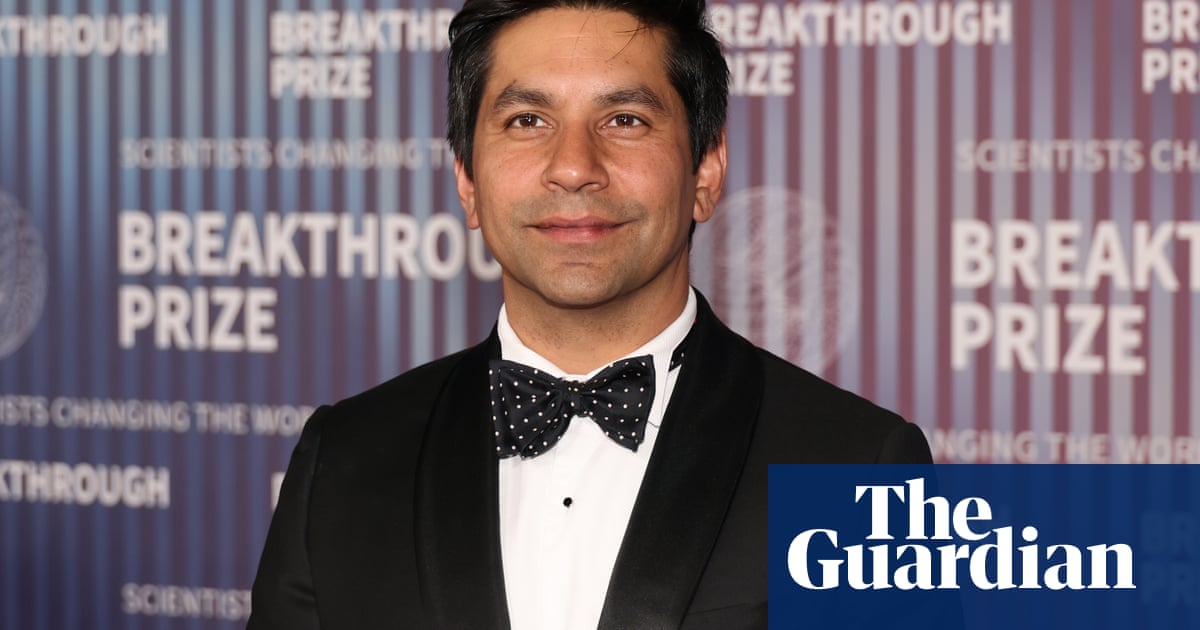When British officials landed in Washington this week to put the finishing touches on a deal to reduce tariffs on British exports, they were joined by a man little known outside Westminster, but who has played a vital role in getting the deal over the line.
Varun Chandra, the business adviser toKeir Starmer, spent all of Tuesday in meetings with the US commerce secretary Howard Lutnick and the trade representative Jamieson Greer as both sides finalised the agreement, which is set to be announced on Thursday.
Chandra does not have a formal trade role in the British government. But his presence in Washington epitomises how the 40-year-old has become a central figure in Keir Starmer’s Downing Street, boasting a corporate contacts book that few in the Labour government can rival.
One Whitehall official said: “Varun has emerged over recent months as a vital link in the centre of government, alongside Morgan McSweeney [the prime minister’s chief of staff], Jonathan Powell [the national security adviser], Liz Lloyd [the head of delivery] and Michael Ellam [the head of international economic affairs].”
A Downing Street source added: “Varun is well liked across government, and the support and advice he has given to ministers has been invaluable in shaping key decisions and relationships.”
Ben Wegg Prosser, a friend of Chandra and the chief executive of the corporate consultancy Global Counsel, said: “The Trump administration has made the political weather like no other. Varun has been able to read the crosswinds and played a key role advising UK ministers in this process.”
As a young man, Chandra worked on David Miliband’s campaign to be Labour leader. But in most other ways, he stands apart from the tight-knit group around the prime minister, having come from the corporate sector rather than politics or the civil service.
When he became managing partner of Hakluyt at just 34, the corporate intelligence firm was often jokingly referred to in business circles as a retirement home for secret service agents. Chandra was the first head of the organisation not to have worked for government or the intelligence agencies, and wanted to expand the kind of work it did and the transparency with which it did it.
“Say you’re a chief executive who is about to move to Dubai,” said a former colleague. “Varun would be there with a list of possible schools for your children.”
Another said: “He’s a brilliant salesman. He really can sell you your own watch.”
But Chandra’s corporate background has also brought complications, given hestill ownsaround £7m worth of shares in Hakluyt, and therefore stands to benefit financially from the commercial agreements he helps negotiate.
Rose Whiffen, senior research officer at Transparency International UK, said: “When special advisers retain their financial holdings, this could consciously or unconsciously impact the recommendations they give to ministers.”
The government said Chandra had declared any relevant interests to the Cabinet Office.
Chandra’s soft skills have been tested in recent months as the government has deployed him to defuse anger in the business community after recent rises in national insurance and the minimum wage.
One FTSE 100 chief executive said: “He said to us after the budget, ‘I really get why this isn’t the answer you wanted. But over time I’m going to make it better.’”
Another task has been to attract large-scale international investment into the UK. Sources say he persuaded the Emiratisto invest £1bn in the UK, after a prospective deal was put at risk by a fallout over public comments by the then transport secretary Louise Haigh.
Government officials say he also played a vital role advising Rachel Reeves on herrecent overhaulof UK business regulators. The chancellor ended upforcing outthe chair of the Competition and Markets Authority, whom she deemed insufficiently growth-focused.
But it is Chandra’s work on the US trade deal that could end up providing the most value to the prime minister. His central role in those talks became evident to many in Westminster when he was spotted sitting behind Starmer during his Oval Office meeting with the US president, Donald Trump.
Chandra was in Washington this week to finalise the details of the deal, which was hinted at in a social media post by Trump on Wednesday night. The president said he was about to announce a “MAJOR TRADE DEAL WITH REPRESENTATIVES OF A BIG, AND HIGHLY RESPECTED, COUNTRY”.
Several sources have told the Guardian that Chandra’s specific role in agreeing the deal has been to “man mark” Lutnick and Greer. By keeping in regular contact with both men, Chandra’s job was to be a reliable go-between amid the noise created by the Trump administration, even if he leaves the actual decision-making to ministers.
“The Trump administration is a different kind of administration, and you need to engage with it in different ways,” said the Whitehall official. “Varun has been a key conduit given his knowledge of the people within the administration and his business connections beyond it.”
One ally added: “It is a difficult task keeping everyone onside when dealing with Washington right now.
“But Varun is the person who had to speak to the business community on behalf of a Labour government that had just massively increased the cost of doing business. If anyone can manage that relationship, he can.”
